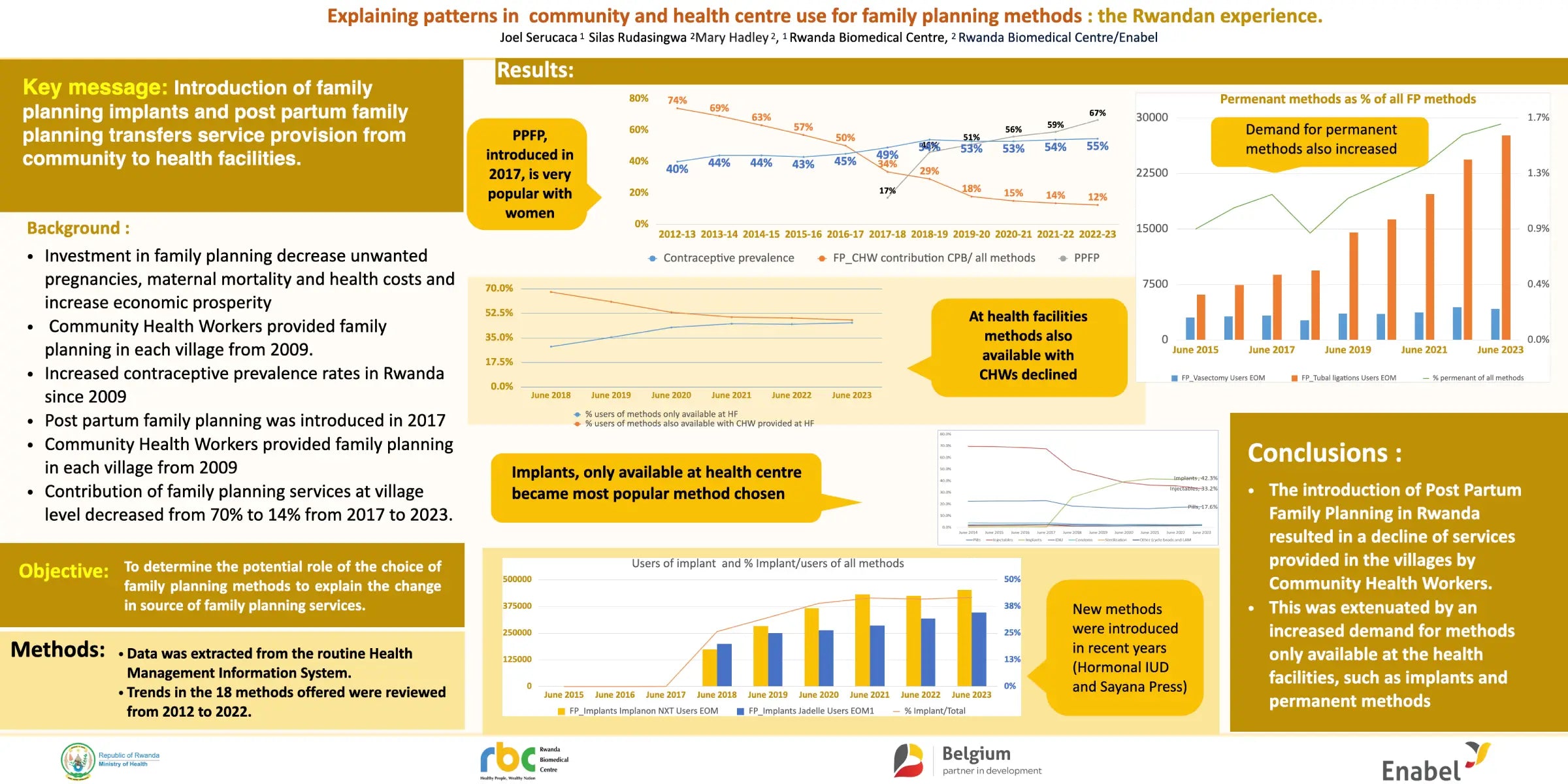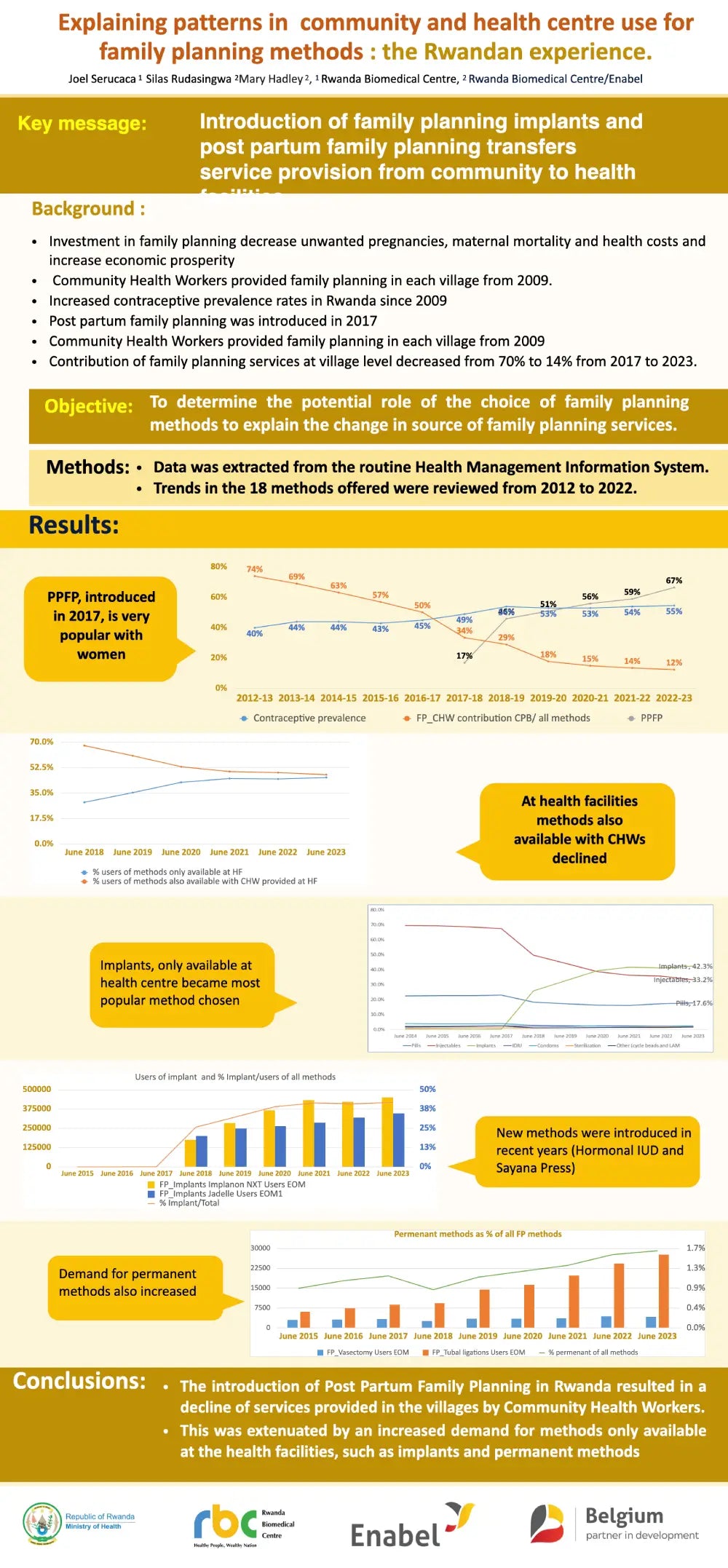Family Planning
Patterns in method use for family planning: the Rwandan experience.
Investment in family planning has been shown to decrease unwanted pregnancies, maternal mortality and national health costs. It also has the potential to increase economic prosperity in a country where job creation and other conditions are in place.
Rwanda has increased contraceptive prevalence rates of modern methods over the past ten years. Community Health Workers were introduced into each village in 2009 to provide family planning. Then, in 2017, an emphasis on provision of family planning before discharge following delivery was championed by the Ministry of Health. Since health facility delivery rates are well over 80% this was an approach that could potentially cover more women. Over the past ten years it was noted that the Community Health Worker contribution to family planning services fell from 70% to 14% while post-partum family planning increased from 0% in 2017 to 56% in 2023.
We extracted data from the routine Health Management Information System to establish ten year trends in 18 methods offered by Community Health Worker and post-partum. We found an increase in the use of long-term family planning methods, which are not provided by Community Health Workers over the past decade. This corresponded with the decrease in the uptake of family planning in the community.
We, therefore, concluded that post-partum family planning appears to be a more effective way to provide longer-term, more efficient, methods of family planning than community based family planning. This applies in countries with high health facility delivery rates. The results raise two questions related to the role of the Community Health Workers. Firstly, how can their role be strengthened in follow up of mothers given family planning post-partum? For this we will be monitoring drop-out from family planning methods. Secondly, do the Community Health Workers have the skills and experience needed to increase contraceptive uptake in women to delay child-bearing rather than child-spacing. Family Planning uptake in women before the birth of the first child is unpopular in many countries in Africa and South Asia. Can Community Health Workers, entrenched in the same cultural beliefs and values, convince and provide contraceptive methods to these women or should their role be one of referral to health centre where more reliable methods are available? Your thoughts?


Post Partum Family Planning
Access to Family Planning is key to economic development and reproductive health and rights. However, in many countries in Africa and South Asia women prefer to delay using family planning until after the birth of the first child.
